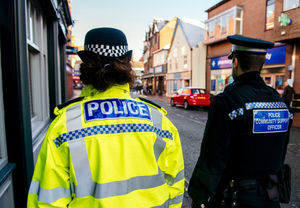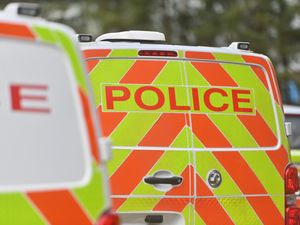Police urge Shropshire communities to report county lines suspicions during lockdown
West Mercia Police are encouraging people to stay vigilant and look out for signs of county lines drug dealing and exploitation during the coronavirus lockdown.

Things to look out for include neighbours receiving visitors at all hours of the day and night, visitors who don't stay long or people who arrive with bikes or bags but leave without them, police said.
A statement said: "County lines drug gangs often exploit young or vulnerable people, coercing them to sell drugs and participate in other criminal activities, initially through sophisticated grooming techniques, but often resulting in control through fear and violence.
"These tactics often mean the young person is then in their debt and will owe them favours, such as carrying weapons or selling drugs. They have no problem with putting a young person at risk to make money.
"We know that some young people, when put in a difficult and frightening situation, have made decisions in the heat of the moment that have unfortunately changed their lives and others forever.
"Knowing the signs to spot can mean that you can help a young person before it’s too late – before they either get hurt or do something that they ending up regretting."
'Communities play a crucial role'
Assistant Chief Constable Damian Barratt said: “Our communities play a crucial role in helping us both prevent and detect crime, and vitally to protect those who are vulnerable from being targeted by criminals looking to exploit them, even during lock-down.
“We know that these criminals will be looking at different ways to operate to reduce their chances of getting caught and I want to reassure communities that we continue to actively target organised crime right across the force area.
“The public can play a vital role in supporting our work. They will see and hear things, and if it concerns them, we want to know.
More Covid-19 coverage:
"Over the past few years we have trained more than 10,000 people to spot the signs of vulnerability and exploitation and want to extend that wider to make sure we are all doing what we can to safeguard those who are our most vulnerable.
“With people spending more time at home they may see suspicious or out of the ordinary behaviour in their neighbourhood, for example unexpected visitors or a young person suddenly turning up at a neighbour’s house who is not their child.
"It may be this is genuine but it could also be connected to county lines, and if someone is concerned we want to know.
“Likewise, as children and young people are spending more time at home, parents may notice a change in their behaviour.
"Perhaps they seem withdrawn or secretive, have money or expensive gifts that can’t be accounted for or have started associating with older individuals or associating with gangs.
“We are continuing to work with our local authorities and partner agencies to make sure we are doing all we can to safeguard those at risk and if anyone is concerned we would encourage them to get in contact.”
Signs to look out for
Signs of drug dealing can include:
Unexpected visitors coming and going from a neighbour’s house at all hours of the day or night.
Continual stream of visitors who don’t stay long, or who arrive with electrical items, bikes or bags but leave without them.
Potential transactions carried out through car windows outside properties.
Cars parked for long periods without moving, but with continual visits to collect items from within the car.
A young person (who is not their child) suddenly living in a neighbour’s house.
Signs that a young person might be being groomed or exploited include:
A child or young person repeatedly going missing from home or their care home.
Significant changes in the well-being of a child or young person – they might be more angry or withdrawn than normal.
Had they started to hang around with different or older people, have an older boy or girlfriend and or not see their existing friends as much before lockdown?
Are they coming home with money or items they can’t afford, or they are unwilling to explain where they got them – such as phones, expensive trainers or clothes?
Suspicion of self-harm, physical assault or unexplained injuries.
Being secretive about where they are, what they are doing, who they are seeing.
Will they let you look in their bags or pockets?
Will they let you look at their phone, are they secretive about who is calling or messaging? Do they have multiple mobile phones?
Are they scared to go out or perhaps reticent to go to certain places?
A lone child from outside of the area.
Concerns can be reported on 101 or online at www.westmercia.police.uk/ro/report/ocr/af/how-to-report-a-crime
Alternatively, contact Crimestoppers anonymously on 0800 555111 or at crimestoppers-uk.org
Young people can pass on information anonymously and find further information and advice at fearless.org
If it is an emergency, a crime is in progress or life is at immediate risk always ring 999.





